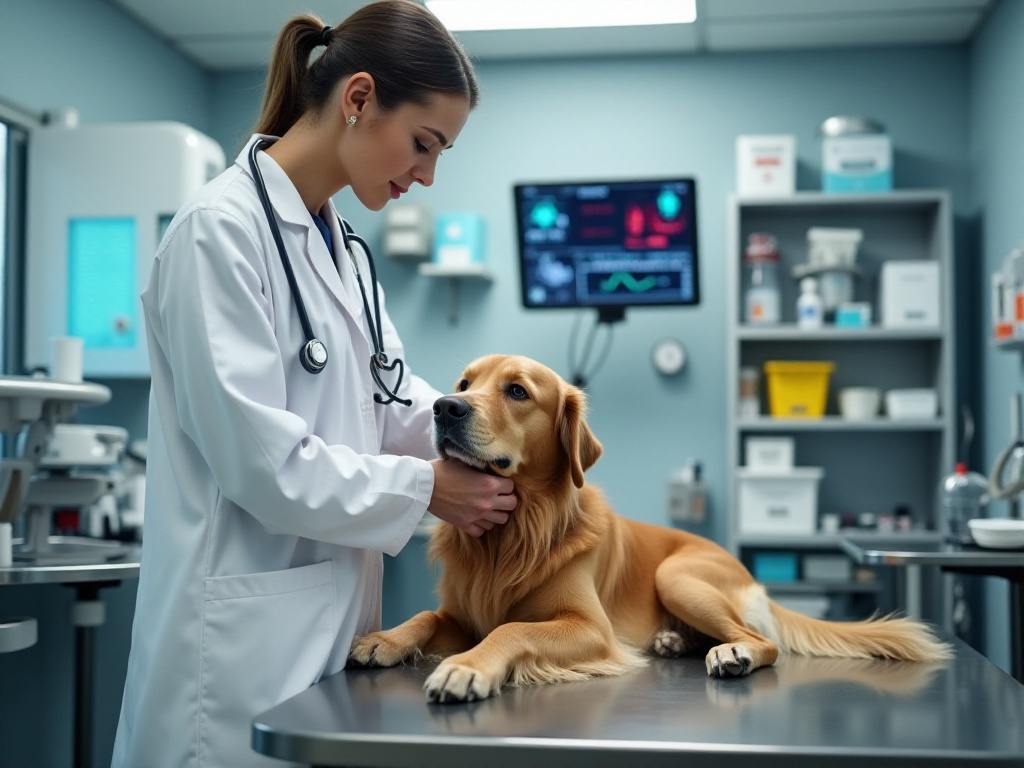Introduction
Recently, I've received many messages from pet parents asking how to take better care of their fur babies. As someone who has kept pets for over a decade, I know that caring for a furry friend is no easy task. During these years of pet keeping, I've experienced both joys and challenges, each experience deepening my understanding of pet care. I've witnessed countless pet parents grow from novices to experienced caregivers, and also seen cases where lack of preparation led to setbacks. Today, I'll share how we can provide our pets with healthy and happy lives through scientific care methods.
Health First
When it comes to pet care, health is paramount. You might think, "My dog or cat seems energetic, why do they need regular check-ups?" But like humans, many animal diseases show no obvious symptoms in their early stages. My Golden Retriever was diagnosed with early-stage hyperthyroidism during a routine check-up, and thankfully, with timely discovery and treatment, has now fully recovered. This experience taught me the importance of regular check-ups.
According to the American Veterinary Association, pets receiving regular check-ups live 2-3 years longer than those who don't. A long-term study of 10,000 pets found that those receiving annual check-ups had a 65% higher early detection rate for major diseases, with cure rates increasing by 40%. Therefore, I strongly recommend at least one comprehensive check-up annually, with semi-annual check-ups for pets over 7 years old.
Check-ups should include basic physical examination, blood work, comprehensive biochemistry, and ECG. The focus varies for different age groups. Young pets need attention to growth development and congenital disease screening; adult pets require more focus on chronic disease prevention and screening; senior pets need additional bone and joint function examinations.
Vaccination is another crucial aspect. Research shows that 95% of canine distemper cases occur in dogs with incomplete vaccinations. Statistics from 50,000 pets show that vaccinated pets have only 1/20 the chance of contracting infectious diseases compared to unvaccinated ones. Remember to follow the immunization schedule - it's vital for protecting your pet's life.

Daily Living
Regarding daily life, many new pet parents are most confused about feeding. What to feed? How much? How to feed? These are all crucial questions. Scientific feeding methods affect not only pets' health but also their lifespan and quality of life.
In my experience, food selection should be based on the pet's age, size, and health condition. For instance, my Golden Retriever was prone to allergies since young, and we found suitable grain-free food through trial and error. Studies show that scientific nutritional ratios can increase pets' life expectancy by 20-30%. A five-year study found that pets on scientific feeding plans had 45% lower rates of nutrition-related diseases.
Exercise is equally important. Hospital statistics show that over 60% of urban pets lack sufficient exercise. I recommend at least 30 minutes of effective exercise on workdays, with more on weekends. A tracking study shows that dogs maintaining adequate daily exercise have 40% lower cardiovascular disease rates and 50% lower joint problems compared to inactive ones.

Prevention is Better Than Cure
Many people don't realize that preventive care can help pets avoid numerous health issues. For example, spaying/neutering not only prevents unwanted breeding but also prevents various diseases. Data shows that unspayed female dogs have 8 times higher breast cancer rates than spayed ones. A 10-year follow-up study confirms that timely spayed/neutered pets live 1-2 years longer than unaltered ones.

Smart Living
Let me share some particularly useful life hacks. For feeding management, many large dogs have a habit of wolfing down their food. I found that using a large, shallow plate can effectively slow down eating. You can also use slow-feeder bowls or smart feeders, which can extend feeding time by 3-4 times, effectively preventing digestive system diseases like gastric torsion.

Education is Important
Pet care isn't just about basic needs; proper education and training are also crucial. Research shows that dogs with basic training have closer relationships with their owners and fewer behavioral problems. A study of 1,000 family dogs showed that systematically trained dogs have 80% higher obedience rates than untrained ones.

Conclusion
Having a pet is both a joy and a responsibility. Through these basic care practices, you too can become a competent pet parent. Remember, every detail matters, from daily feeding to regular check-ups, from basic training to necessary medical care - all require our careful attention.
In pet care, we need to focus on both physical and mental health. Give them sufficient love and companionship to make them feel at home. Studies show that well-loved pets are not only healthier but also live longer.
Do you have any particularly useful pet care tips? Please share them in the comments section so we can learn from each other. Pet care is a continuous learning and growth process, and everyone's experience is valuable.
Remember, every furry friend deserves the best care. Let's work together to give them a healthy and happy home. Through scientific care and loving attention, our pets can surely live quality lives.


